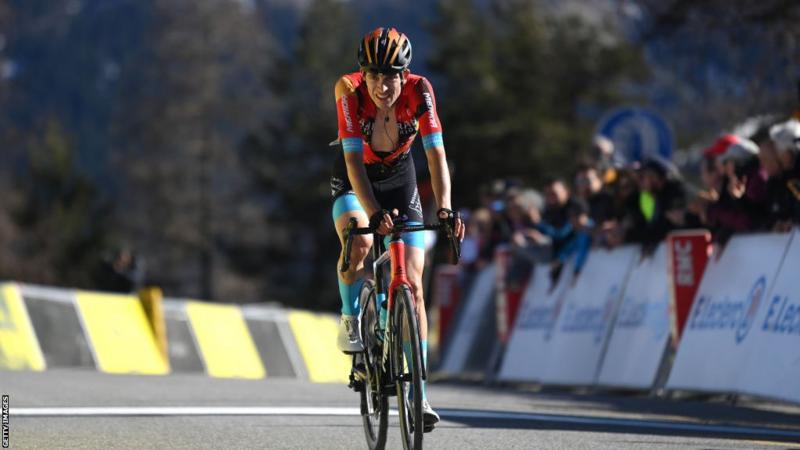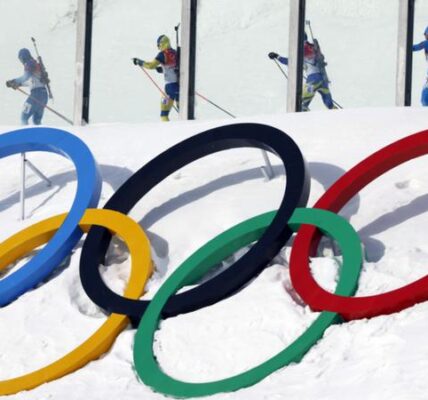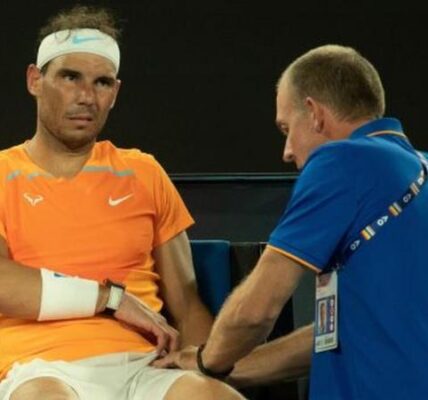Gino Mader, a Swiss cyclist, died at the age of 26 after collapsing on stage five of the Tour de Suisse.
On the descent of the Albula Pass on Thursday, the Team Bahrain Victorious rider was engaged in a high-speed crash with American Magnus Sheffield, 21, and crashed into a ravine.
He was resuscitated at the scene before being evacuated to Chur Hospital, where he died on Friday morning.
Mader was described as “one of the shining lights of our team” by Bahrain Victorious.
Friday’s stage six was canceled, but the peloton will ride the final 20 kilometers together in Mader’s honor.
“Gino was an extraordinary athlete, an example of determination, and a valued member of our team and the entire cycling community,” Mader’s team stated in a statement.
“His talent, dedication, and passion for the sport has inspired us all.”
“Not only was he an extremely talented cyclist, but he was also a great person off the bike,” said team managing director Milan Erzen.
“Bahrain Victorious will race in his honor, carrying his memory with us on every road.” We are determined to emulate Gino’s attitude and drive, and he will always be an important member of our team.”
The Tour de Suisse said it is “heartbroken” by Mader’s loss, while the UCI, cycling’s world governing body, said he was a “rising star.”
Sheffield, an Ineos Grenadiers rider, was brought to the hospital with a concussion and soft tissue injuries.
Mader was a track cyclist before becoming a road professional in 2019 and joining Team Bahrain Victorious two years later.
In 2021, he won stage six of the Giro d’Italia and finished first in the Vuelta a Espana’s young rider classification.
Soudal-Quickstep rider and road race world champion Remco Evenepoel raised his fears about the “dangerous descent” near the finish after stage five ended.
‘Your smile will live on in our hearts forever,’ says one.
The Giro d’Italia stated Mader’s “smile will forever be in our hearts,” while UCI president David Lappartient said he was “deeply saddened” by the news, calling it a “terrible blow” to the cycling community.
“I can’t believe what I’m reading,” remarked British Tour de France winner Geraint Thomas. What a horrible, sad day. “Our condolences to everyone who knew and loved Gino.”
The CPA, the professional riders’ organisation, adding, “Our hearts bleed at this news.” Condolences to his family, the team, and all of his many friends.”
“Again, someone taken too soon,” remarked Thomas de Gendt, a five-time stage winner in the Tour de France, Giro d’Italia, and Vuelta a Espana. I’m nauseated from reading this terrible news.”
“There are no words,” remarked former world champion Alejandro Valverde.
‘Mader’s tragedy must reignite the debate over race descents.’ – examination
Matt Warwick is a BBC Sport cycling correspondent.
Gino Mader was a gifted rider whose ability to scale the highest peaks alongside the sport’s best athletes was well admired.
His triumph during the 2021 Giro d’Italia on the climb to Ascoli Piceno, in which he overcame 2019 Tour de France winner Egan Bernal among others, will now be the pinnacle of a life and career cut brutally short.
However, his death serves as a reminder that cycling is one of the most dangerous high-profile professional sports, taking place on restricted public roads with little or no safety for riders under time pressure while descending from major mountain climbs.
Riders routinely exceed 100kph, as illustrated by Britain’s Tom Pidcock’s racecraft during last year’s Tour de France stage triumph to Alpe d’Huez.
Cycling previously lost a high-profile rider in comparable circumstances at the World Tour level in 2011, when Belgium’s Wouter Weylandt fell in the Giro d’Italia after descending quickly and died from head injuries.
While descending is a large part of what makes professional road cycling so exciting for its fans, Mader’s tragedy must renew the debate of whether such a dangerous endeavor should be changed.




